 According to Nicole Poon’s blog post, the price of chocolate has drastically risen due to the increased price of raw material. Soon, chocolate will become a luxury item, so much so that not everyone will be able to afford it. Reports show that chocolate prices may possibly increase to a horrific price of $113 per kilogram. The prices of raw materials, once cheap and readily available resources for chocolate companies, are projected to increase significantly. According to research done by Mintec, the price of raw material to produce 100 grammilk chocolate bars has increased 28 percent this year. The price of cocoa butter- a major ingredient and component of chocolate bars- rose as much as 63%. Not only is the price of cocoa butter increasing, but the price of milk powder is also rising by 20%. From the statistics, the cost for a company to produce one chocolate bar is going much higher than previous times. Consequently, consumers will have to suffer from the increased prices of material and pay more for each chocolate they consume. From a business perspective, the consumption of chocolate by the world’s biggest of chocolate aficionados in Europe will most likely drop if current price trends are not reversed. By then, the sweet taste of chocolate may soon become a distant dream for most common folks.
According to Nicole Poon’s blog post, the price of chocolate has drastically risen due to the increased price of raw material. Soon, chocolate will become a luxury item, so much so that not everyone will be able to afford it. Reports show that chocolate prices may possibly increase to a horrific price of $113 per kilogram. The prices of raw materials, once cheap and readily available resources for chocolate companies, are projected to increase significantly. According to research done by Mintec, the price of raw material to produce 100 grammilk chocolate bars has increased 28 percent this year. The price of cocoa butter- a major ingredient and component of chocolate bars- rose as much as 63%. Not only is the price of cocoa butter increasing, but the price of milk powder is also rising by 20%. From the statistics, the cost for a company to produce one chocolate bar is going much higher than previous times. Consequently, consumers will have to suffer from the increased prices of material and pay more for each chocolate they consume. From a business perspective, the consumption of chocolate by the world’s biggest of chocolate aficionados in Europe will most likely drop if current price trends are not reversed. By then, the sweet taste of chocolate may soon become a distant dream for most common folks.
Sources:
https://blogs.ubc.ca/nicolejoellepoon/2013/10/08/soaring-chocolate-prices/

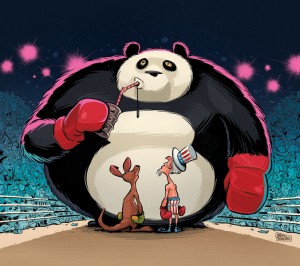
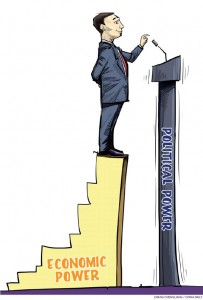
 In the past few years, China has slowly grown from its humble beginnings to become an economic powerhouse of the world. China has in fact become the world’s second largest economy, superseding the Gross National Product of Japan and with the largest foreign currency reserve of more than $1.4 trillion, some of which is held in gold. Gold prices may have dropped drastically earlier this year, but in the eyes of Chinese consumers, this prized metal still has an irreplaceable value. Statistics have shown that China has leaped over India to become the world’s top gold consumers. With a dazzling amount of 798 tonnes of gold purchased, China has outcompeted India and now prides itself as the world’s top gold holder. Gold is among the top financial assets, alongside stocks and real estate property, as favourites for Chinese investors. China, what is now considered one of the most powerful countries despite its status as a developing nation, has showed strong signs that they are capable of becoming the world’s largest economy in decades to come.
In the past few years, China has slowly grown from its humble beginnings to become an economic powerhouse of the world. China has in fact become the world’s second largest economy, superseding the Gross National Product of Japan and with the largest foreign currency reserve of more than $1.4 trillion, some of which is held in gold. Gold prices may have dropped drastically earlier this year, but in the eyes of Chinese consumers, this prized metal still has an irreplaceable value. Statistics have shown that China has leaped over India to become the world’s top gold consumers. With a dazzling amount of 798 tonnes of gold purchased, China has outcompeted India and now prides itself as the world’s top gold holder. Gold is among the top financial assets, alongside stocks and real estate property, as favourites for Chinese investors. China, what is now considered one of the most powerful countries despite its status as a developing nation, has showed strong signs that they are capable of becoming the world’s largest economy in decades to come.

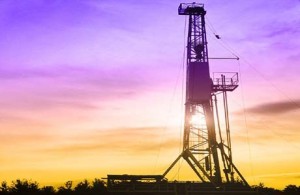 Natural gas is a form of fossil fuel that is located in deep underground rocks and is a source of energy formed from layers of buried plants. The energy obtained from the sun is absorbed by the plants and stored in the form of carbon. News reports from the government of British Columbia have shown that the province’s natural gas reserves are double the previous approximations. It is estimated that BC has 2,933 trillion cubic feet worth of natural gas, which is enough to support both development and exportation operations for the next 150 years. As a result, British Columbia will be able to take advantage of the natural resources to improve its economic and industrial state. In the business world, however, the possession of natural gas can have both positive and negative effects. According to statistics, Encana Corp “is cutting 800 jobs” in order to “[refocus] its resources”. On the other hand, reports say that the natural gas possession would add as much as $1 trillion to the province’s GDP by 2046 and result in 100,000 new jobs.
Natural gas is a form of fossil fuel that is located in deep underground rocks and is a source of energy formed from layers of buried plants. The energy obtained from the sun is absorbed by the plants and stored in the form of carbon. News reports from the government of British Columbia have shown that the province’s natural gas reserves are double the previous approximations. It is estimated that BC has 2,933 trillion cubic feet worth of natural gas, which is enough to support both development and exportation operations for the next 150 years. As a result, British Columbia will be able to take advantage of the natural resources to improve its economic and industrial state. In the business world, however, the possession of natural gas can have both positive and negative effects. According to statistics, Encana Corp “is cutting 800 jobs” in order to “[refocus] its resources”. On the other hand, reports say that the natural gas possession would add as much as $1 trillion to the province’s GDP by 2046 and result in 100,000 new jobs.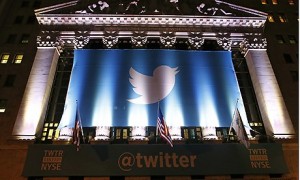



 crease the unemployment rate. Migrant workers fill vacant jobs and by their presence actually bring about an increase in the wages of local workers. Immigrants not only bring a new set of workers to BC, but they also bring their culture. Our government constantly exhorts us to welcome multiculturalism and its introduction to vastly different ethnic beliefs.
crease the unemployment rate. Migrant workers fill vacant jobs and by their presence actually bring about an increase in the wages of local workers. Immigrants not only bring a new set of workers to BC, but they also bring their culture. Our government constantly exhorts us to welcome multiculturalism and its introduction to vastly different ethnic beliefs. On the other hand, immigration can be a burden, because it exacerbates the burden on social and public services as well as on cultural integration and interaction of all the races in the nation. Many detest the notion of immigration because it decreases wages that will be paid since more people are competing for the same jobs. Another problem with the influx of immigrants, particularly from Asia, is the escalation in house prices. The amount of land that is available for building is being reduced due to the fact that immigrants purchase multiple houses. Although immigration may have negative influences on BC, we should embrace the obstacles and setbacks.
On the other hand, immigration can be a burden, because it exacerbates the burden on social and public services as well as on cultural integration and interaction of all the races in the nation. Many detest the notion of immigration because it decreases wages that will be paid since more people are competing for the same jobs. Another problem with the influx of immigrants, particularly from Asia, is the escalation in house prices. The amount of land that is available for building is being reduced due to the fact that immigrants purchase multiple houses. Although immigration may have negative influences on BC, we should embrace the obstacles and setbacks.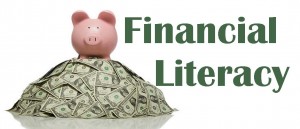 oney offers two distinctly different views; it can provide one with happiness but on the other hand problems can also arise from it. The issue regarding money can be looked upon in many different facets. Financial literacy is the knowledge of understanding finance and how to properly manage money.
oney offers two distinctly different views; it can provide one with happiness but on the other hand problems can also arise from it. The issue regarding money can be looked upon in many different facets. Financial literacy is the knowledge of understanding finance and how to properly manage money. More specifically, it refers to the skills and knowledge that allows one to make informed and effective decisions through their understanding of finances. Financial literacy is a conflict that may not be properly understood but is also important in living a good life. Some people don’t understand how to properly manage their money and would rather lie down on the job. Improper money management and careless spending can result in a lot of future conflicts like bankruptcy. In order to avoid conflicts like these, it is important to start inquiring information regarding financial literacy at a young age and setting aside money that can be saved. Proper understanding of financial literacy may seem difficult but it is important to take a look at it in order to avoid any future problems.
More specifically, it refers to the skills and knowledge that allows one to make informed and effective decisions through their understanding of finances. Financial literacy is a conflict that may not be properly understood but is also important in living a good life. Some people don’t understand how to properly manage their money and would rather lie down on the job. Improper money management and careless spending can result in a lot of future conflicts like bankruptcy. In order to avoid conflicts like these, it is important to start inquiring information regarding financial literacy at a young age and setting aside money that can be saved. Proper understanding of financial literacy may seem difficult but it is important to take a look at it in order to avoid any future problems.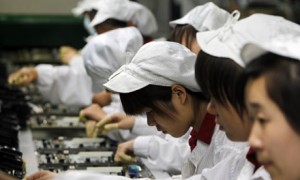
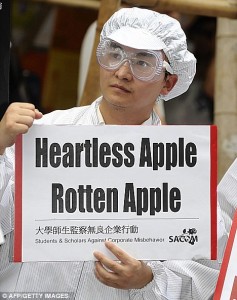 Apple has taken advantage of the fact that many unemployed Chinese would do whatever it takes to land a job, and consumers worldwide have also benefitted from lower prices in the latest gadgets, but at what cost? In order to maximize corporate profits and consumer loyalty, the rights and privileges of Chinese workers are sacrificed. The existence of these sweatshops violate business ethics in every way; however, the perpetrators are not just multinational companies, but also consumers, some of whom may claim to be environmentally friendly or socially progressive yet indirectly participate in the continuous abuse of human rights elsewhere.
Apple has taken advantage of the fact that many unemployed Chinese would do whatever it takes to land a job, and consumers worldwide have also benefitted from lower prices in the latest gadgets, but at what cost? In order to maximize corporate profits and consumer loyalty, the rights and privileges of Chinese workers are sacrificed. The existence of these sweatshops violate business ethics in every way; however, the perpetrators are not just multinational companies, but also consumers, some of whom may claim to be environmentally friendly or socially progressive yet indirectly participate in the continuous abuse of human rights elsewhere.